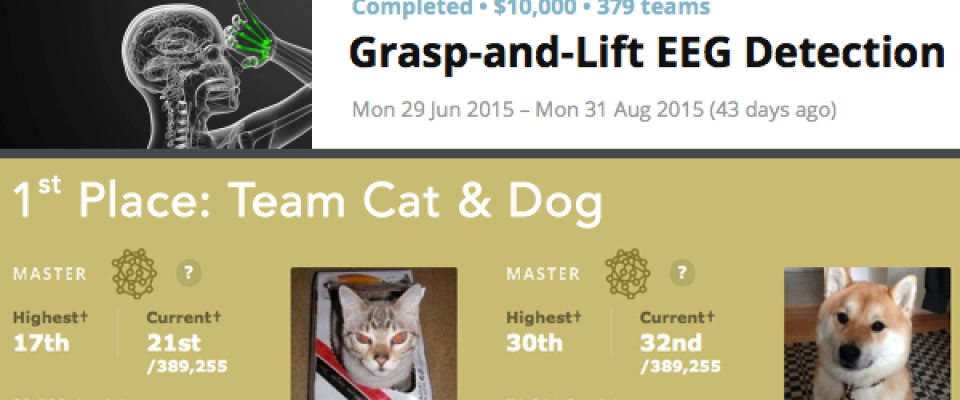You are here

Beat the Benchmark. 0.708
Alexandre Barachant, Ph.D. (aka Cat), a postdoctoral fellow at Burke Medical Research Institute, and teammate Rafal Cycon (aka Dog), recently placed first in a non-invasive brain-computer interface (BCI) challenge, Grasp-and-Lift EEG Detection, sponsored by WAY Consortium. 379 teams of research scientists were challenged to identify patterns in EEG data taken from healthy subjects as they used hands to grasp, lift and replace objects. The purpose of the challenge is to better understand the relationship between EEG signals and hand movements to develop a BCI device to help improve the quality of life for people who are unable to use their hands as a result of neurological disabilities or are an amputee.
WAY Consortium sponsored the challenge to learn more about EEG signals evoked by brain activity. To help restore lost hand function with an affordable brain-computer interface (BCI) prosthetic device is dependent on further advancing the interpretations of EEG signals.
As a result of the challenge (and two other first places in similar challenges), Dr. Barachant is now tagged as the EEG expert in the data-science community. He also placed first and second for snippets of code shared during the challenge. His winning scripts were a Beat-the-Benchmark Script that provided a simple solution to start in the challenge and a visualization script, Common Spatial Pattern with MNE, to shows common spatial pattern and MU/Beta suppression related to hand movements. Kaggle.com select Dr. Barachant’s scripts “Common Spatial Pattern with MNE” and “Visual Evoked Potential (VEP)” as scripts of the week for August 2015.


